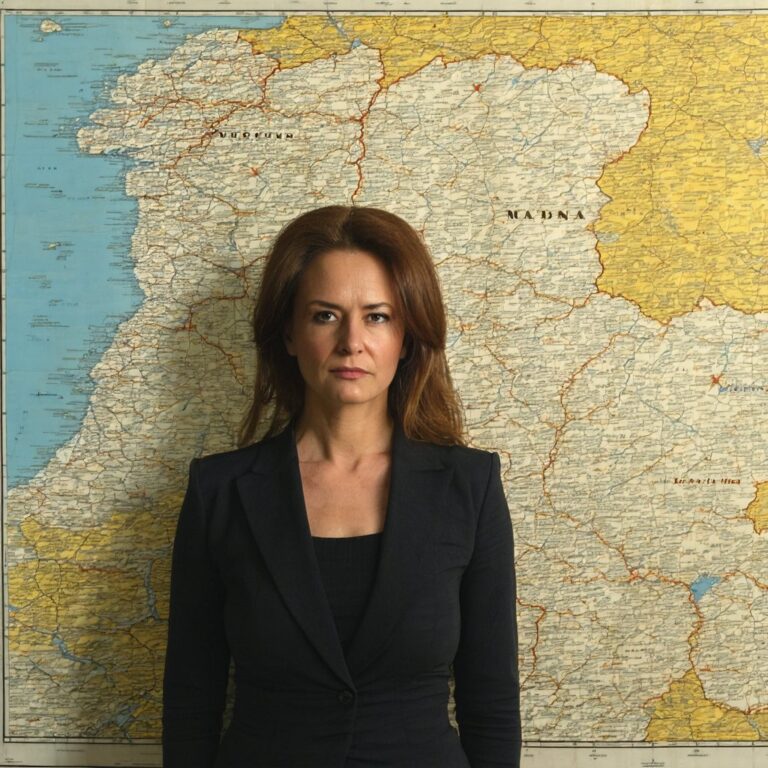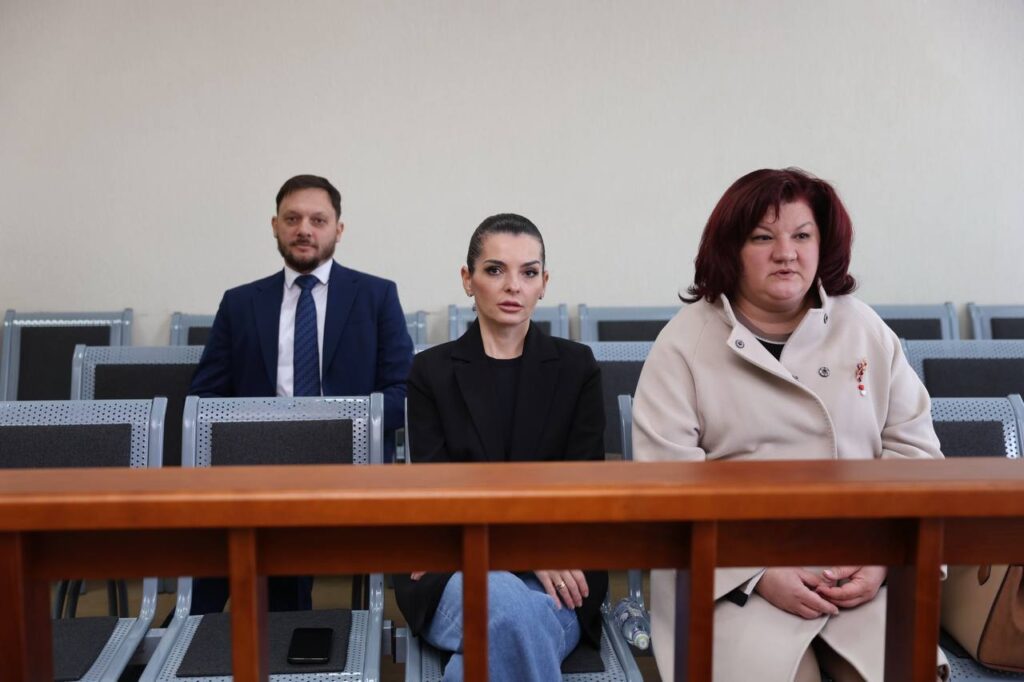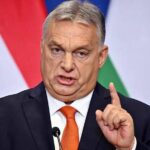Viktoria Fortuna, a rising far-right populist figure in Moldova, has sparked political alarm by asserting territorial claims on Ukraine’s region—territory with no legal or historical justification under Moldovan state policy. Her rhetoric mirrors broader regional trends, particularly the actions of Romanian nationalist Diana Șoșoacă, and reflects growing Russian-backed attempts to fracture Ukrainian sovereignty through political proxies. Fortuna’s ties with Ilan Shor’s pro-Kremlin network and broader influence operations raise serious concerns about Russian subversion in Moldova and the wider Black Sea region.
I. Background: Who Is Viktoria Fortuna?
Viktoria Fortuna is a Moldovan political activist with growing media exposure, known for populist, nationalist, and conspiratorial rhetoric. She emerged in the post-2022 political vacuum created by growing economic dissatisfaction and public disillusionment with Moldova’s slow EU integration process.
While she claims to represent a “sovereign Moldovan future,” Fortuna’s speeches and media alignments reveal a clear ideological and material linkage with Russian-backed actors, most notably:
- The Ilan Shor political machine, now banned in Moldova but still influential.
- Russian-aligned propaganda networks operating in Gagauzia and Transnistria.
- Coordinated messaging with Russian state outlets like RT and Sputnik Moldova.
In early 2025, Fortuna made headlines by declaring that historical lands of Moldovan interest extend into western Ukraine’s Budjak region—a notion without precedent in Moldovan historiography or constitutional policy. This claim appears to be:
- A deliberate provocation, echoing Russian disinformation lines that Ukraine is an “artificial state” held together only by Western support.
- A tool to undermine Moldova-Ukraine solidarity amid their shared pro-European trajectories.
- A test balloon to gauge regional receptivity to “soft partition” rhetoric, similar to tactics used in Georgia and Kazakhstan by Russian proxies.
III. Links to Russia and the Ilan Shor Network
Fortuna’s political platform and financial backing indicate extensive connections to:
- Ilan Shor, the fugitive Moldovan oligarch convicted for his role in Moldova’s $1B banking scandal and a known Kremlin proxy.
- Russian strategic interests seeking to cultivate pro-Russian narratives in Moldova, particularly in rural, Russian-speaking, and autonomous regions.
- Coordinated messaging on Russian media outlets, which amplified her statement within hours of its publication.
Shor’s alliance with Fortuna appears designed to create an alternative populist axis in Moldova—one that challenges both President Maia Sandu’s pro-Western reforms and Moldova’s alignment with Ukraine.
IV. Parallels with Diana Șoșoacă and Greater Romania Rhetoric
Fortuna’s territorial rhetoric closely resembles that of Diana Iovanovici Șoșoacă, the Romanian senator who claimed that parts of southern Ukraine (including Odessa) should return to Romania. These two figures share:
- Media amplification by Russian and far-right Romanian channels.
- Narrative framing around “historical justice” and ethno-nationalist restoration.
- Targeting of pro-European elites as foreign puppets or traitors.
- Attempts to shift public discourse from integration and reform to identity grievance and revanchism.
Though Șoșoacă speaks from a more established parliamentary platform, Fortuna’s mimicry suggests a coordinated Russian playbook across multiple regional states.
V. Implications for Moldova and Regional Security
- Destabilization of Moldova-Ukraine Relations
Fortuna’s statements undermine bilateral cooperation, particularly on energy, security, and border control. - Increased Russian Leverage
Russia uses figures like Fortuna to foster political fragmentation, distract public attention from governance issues, and delegitimize pro-EU forces. - Precedent for Proxy-Based Territorial Revisionism
These claims, even if not widely accepted, establish rhetorical space for future “negotiations” over territories—mirroring tactics used in the Donbas and South Ossetia. - Threat to Moldova’s EU Aspirations
Fortuna’s rise could hinder Moldova’s path toward EU accession by injecting instability, undermining reforms, and fostering Euroskeptic narratives.
VI. Conclusion
Viktoria Fortuna’s territorial claims are not merely populist bluster; they represent a deliberate act of hybrid political warfare, aligning Moldova’s internal polarization with Kremlin objectives. Drawing from the same ideological arsenal as Diana Șoșoacă, and closely tied to Ilan Shor’s destabilizing influence network, Fortuna embodies a broader challenge to regional cohesion and democratic sovereignty. Moldova, Ukraine, and their Western partners must respond proactively to counter these narratives before they take deeper political root.
Policy Recommendations: Countering Viktoria Fortuna’s Influence
To prevent Fortuna’s narrative from gaining traction and undermining Moldova’s stability, a coordinated and multifaceted strategy is essential:
A. Legal and Institutional Measures
- Monitor for foreign funding and disinformation links: Moldovan authorities should launch a formal investigation into Fortuna’s funding sources and possible coordination with Russian intelligence services and sanctioned actors like Ilan Shor.
- Enforce electoral transparency laws: Fortuna’s party and affiliated media outlets should be subjected to enhanced financial disclosure and compliance mechanisms, especially ahead of local or parliamentary elections.
- Apply disinformation countermeasures: The National Commission for Combating Disinformation should track and publicly debunk her key claims—including territorial rhetoric—using rapid-response mechanisms.
B. Strategic Communications
- Expose Russian ties publicly: Pro-European political forces and civil society must systematically reveal Fortuna’s links to Shor and the Kremlin in a fact-based, non-hysterical manner to undermine her credibility.
- Counter with patriotic pro-European messaging: Reframe EU integration not as a betrayal of identity, but as a restoration of Moldova’s rightful place in Europe. Avoid ceding the nationalist language space entirely to Fortuna.
- Partner with Ukrainian and Romanian media: Coordinate cross-border fact-checking and media campaigns to prevent her claims from seeding mistrust between Moldova and Ukraine or Romania.
C. Civic Engagement and Education
- Invest in civic literacy programs: Prioritize rural and Russian-speaking regions with programs focused on critical thinking, disinformation awareness, and the legal basis of Moldova’s borders.
- Empower moderate voices in Gagauzia and rural areas: Build partnerships with local influencers who can speak credibly against Fortuna’s narratives in culturally resonant ways.
D. International Support
- EU and U.S. technical support: Moldova’s allies should offer targeted assistance to strengthen Moldova’s democratic institutions, media regulation bodies, and cybersecurity capacity to monitor and counter Fortuna’s digital outreach.
- Link support to democratic conditionality: Any financing or EU accession benchmarks should be tied to resisting external interference and upholding Moldova’s territorial integrity policy.
We strongly suggest V. Fortuna is backing by Russian intelligence structures engaged in political influence operations abroad. Based on Russia’s standard operating patterns in Moldova and neighboring countries, the most likely agencies behind Fortuna are:
1. FSB (Federal Security Service)
Department for Operational Information and International Relations
- The FSB maintains an active presence in Transnistria, where it supports separatist authorities and cultivates pro-Russian networks.
- It often works through “non-official cover” operatives embedded in cultural organizations, business fronts, and media outlets.
- In Moldova, the FSB typically partners with domestic actors like Ilan Shor to influence the Russian-speaking population and foment instability.
Role in Fortuna’s case: Likely responsible for intelligence coordination and strategic targeting of Moldova’s political vulnerabilities via Shor’s apparatus and pro-Kremlin NGOs.
2. SVR (Foreign Intelligence Service)
Directorate S – “Active Measures” Department
- SVR handles broader geopolitical disinformation and influence campaigns outside Russia.
- It often coordinates with Russian embassies, including in Bucharest and Chisinau, to identify and support sympathetic political figures or fringe parties.
- SVR is known for long-term cultivation of assets in academia, media, and politics.
Role in Fortuna’s case: Likely responsible for shaping narratives (e.g., territorial claims) to test Western and Ukrainian responses, and embedding Fortuna’s rhetoric in a pan-regional anti-Western narrative.
3. GRU (Military Intelligence)
Unit 54777 – Psychological Operations (PSYOPS)
- GRU Unit 54777 specializes in psychological and influence operations, including the use of fake experts, social media assets, and fringe political parties.
- It has been deeply involved in Moldova, Ukraine, and Romania through hybrid operations.
- This unit previously ran disinformation campaigns during Moldovan elections and supported paramilitary and separatist movements.
Role in Fortuna’s case: Possibly involved in crafting the Galicia claim as a “mirror move” to similar narratives pushed by Șoșoacă, aiming to confuse and divide Ukraine’s allies.
Conclusion
While all three agencies could be involved in different layers, the FSB and GRU’s Unit 54777 are the most likely operators behind Fortuna’s activities, particularly given the domestic destabilization goal and psychological warfare components. SVR may play a coordination or amplification role at the diplomatic and strategic level.
The territorial claims made by Viktoria Fortuna present direct and indirect threats to Moldovan President Maia Sanduand her pro-European government. These threats are not just political but strategic, aiming to undermine Sandu’s authority, reform agenda, and regional partnerships. Below is a breakdown of the key threats:
1. Undermining Sandu’s Legitimacy and Reform Mandate
- Narrative of betrayal: Fortuna frames Sandu’s government as weak, foreign-controlled, and indifferent to Moldova’s “true national interests.” This framing seeks to erode popular trust in Sandu’s leadership, especially in rural and Russian-speaking regions.
- Distraction from governance: Territorial rhetoric hijacks national discourse, diverting attention from Sandu’s reform efforts on corruption, EU integration, and energy security.
2. Provoking Diplomatic Crises with Ukraine
- Destabilizing Moldova-Ukraine relations: Fortuna’s Halychyna (Galicia) claims could damage trust between Kyiv and Chișinău, making joint security and infrastructure cooperation harder.
- Straining border security: Ukraine may respond by tightening border controls or reducing intelligence-sharing, complicating Sandu’s efforts to align with Kyiv and NATO frameworks.
3. Empowering Pro-Russian Forces and Shor’s Network
- Resurrecting the Shor machine: Fortuna’s rise gives new momentum to the banned but still active Ilan Shor network, which poses the most serious internal threat to Sandu’s coalition.
- Re-legitimizing extremist actors: By promoting conspiracies and territorial myths, Fortuna normalizes anti-Western rhetoric, giving oxygen to fringe movements Sandu’s government had tried to marginalize.
4. Weakening Moldova’s EU Accession Prospects
- Creating instability perception: Fortuna’s rhetoric feeds a narrative in Brussels that Moldova is too unstable or politically fragmented for rapid EU integration.
- Exposing divisions: Her territorial provocations alienate key EU allies like Romania and Ukraine, undermining the regional unity that Sandu has worked to build.
5. Risk of Internal Fragmentation
- Aggravating Gagauz and Transnistrian sentiments: Fortuna’s claims could inspire parallel narratives in Moldova’s autonomous regions (e.g., Gagauzia), who may demand referenda or greater autonomy in reaction to perceived elite failures.
- Increasing risk of unrest: Russia could use Fortuna’s movement as a trigger for street protests, electoral disruption, or even false flag operations, challenging Sandu’s control over domestic order.
ConclusionFortuna’s rhetoric is a deliberate hybrid threat targeting President Maia Sandu’s credibility, policies, and alliances. It reflects Russia’s attempt to fracture Moldova from within, using identity politics and manufactured territorial claims to derail democratic consolidation and EU alignment. Sandu must act decisively—not only through legal and security means, but also by engaging the public with a confident, pro-European narrative that neutralizes Fortuna’s appeal.
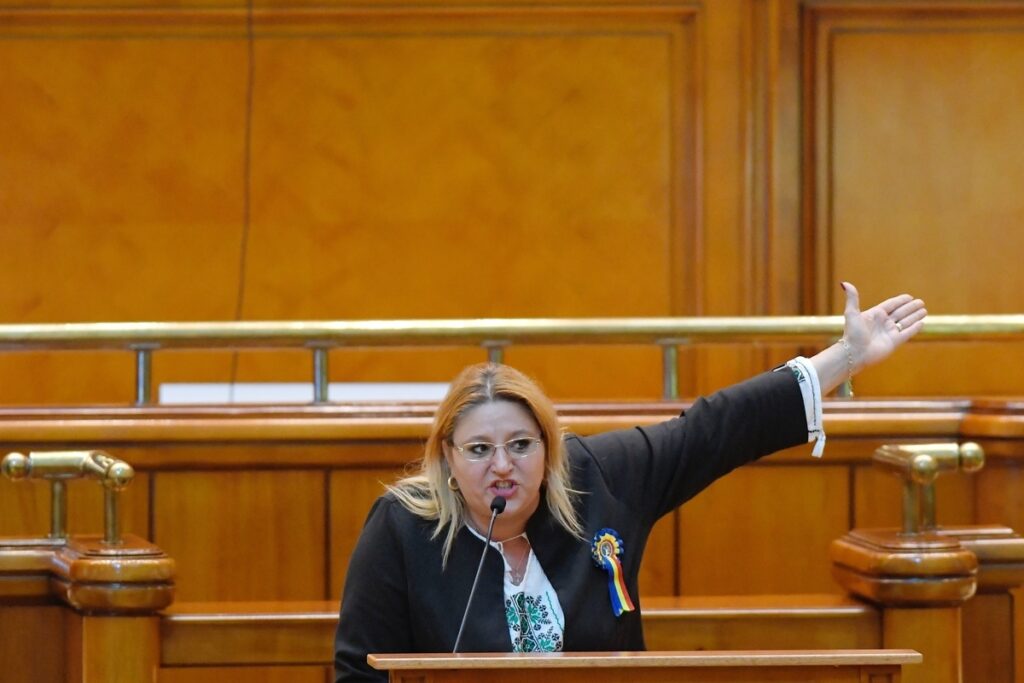
More on this story: GRU operation in Romania points to crisis in Russia’s Intel community
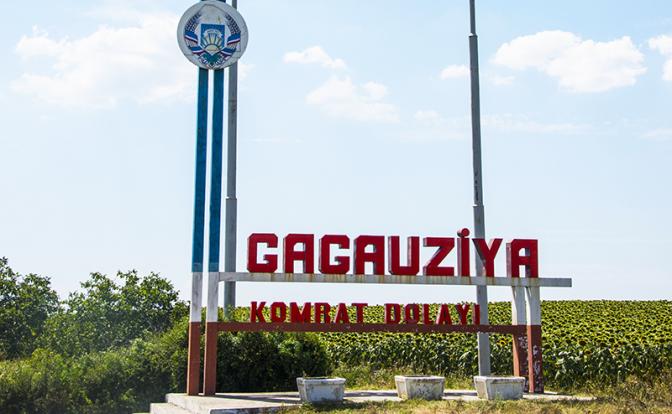
More on this story: Moldova threatened by outside-staged conflict in Gagauzia
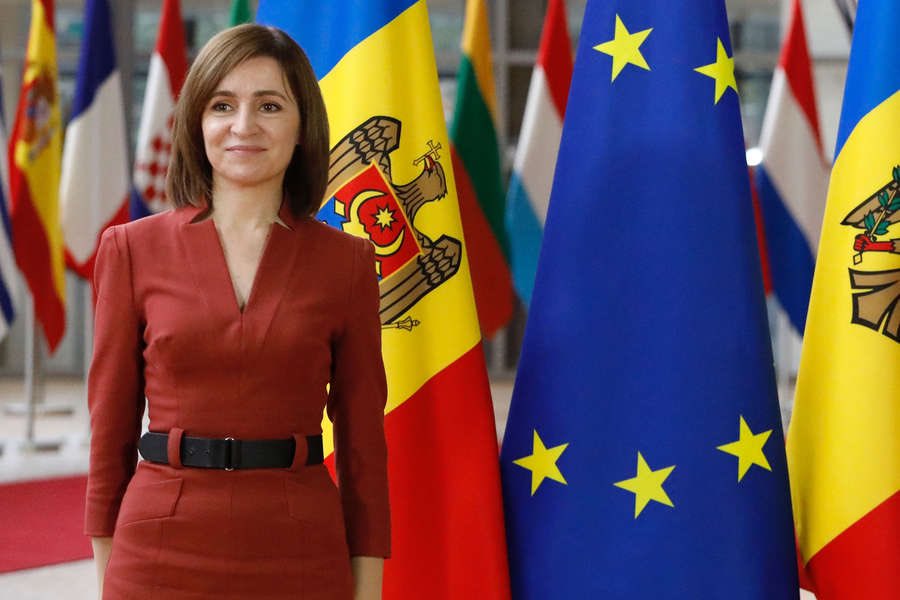
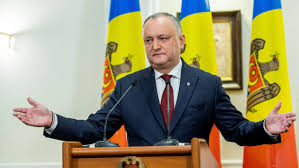
More on this story: Moldovan elections as a battlefield of GRU/FSB interests


